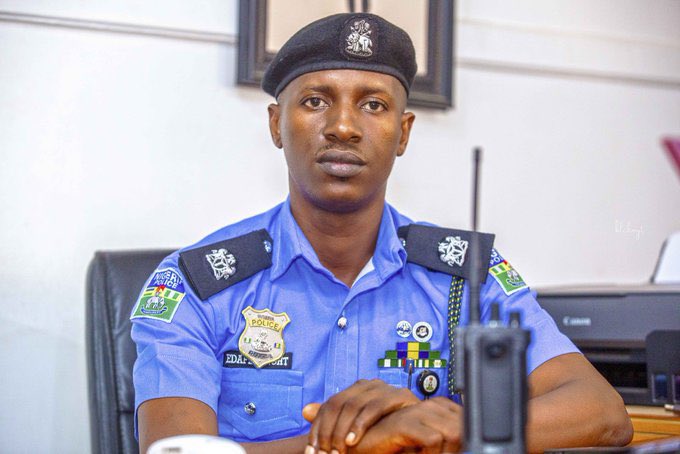
Falz Blasts President Tinubu as Fresh School Abduction in Niger State Sparks Nationwide Outrage

Nigeria was thrown into another dark morning of shock and disbelief after reports emerged that terrorists invaded a Catholic secondary school in Niger State and abducted scores of students and staff in yet another devastating attack that has reignited national anger over the country’s worsening security crisis. The incident, which occurred in the early hours of the day, immediately triggered a wave of reactions across social media, but none as fiery and uncompromising as the condemnation issued by rapper, activist, and lawyer Folarin Falana, popularly known as Falz. In a blistering post that quickly went viral, Falz declared that President Bola Ahmed Tinubu had “failed woefully” and should tender his resignation without delay.
The school—St. Mary’s Catholic Private Secondary School in Niger State—became the latest target in a string of brazen mass kidnappings that have terrorized communities across the North. According to the emerging reports shared by Daily Trust, heavily armed terrorists stormed the school, overpowered local security, and whisked away an alarming number of students and staff. The full number of victims had not been confirmed at press time, but early accounts indicated that more than one hundred people may have been abducted. Within minutes, panic and grief spread across the state as frantic parents rushed toward the school premises seeking information about their missing children.
Amid the chaos, Falz took to social media to express a sentiment that many Nigerians had been whispering, thinking, or shouting: that the government had fundamentally failed in its most basic responsibility—protecting the lives of its citizens. Tagging President Tinubu directly, he wrote in capital letters, “YOU HAVE FAILED WOEFULLY @officialABAT TENDER YOUR RESIGNATION NOW!” The bluntness of his message, combined with the raw frustration in his tone, resonated powerfully with a country exhausted by violence, insecurity, and repeatedly unfulfilled promises of reform.
In a follow-up post, Falz emphasized the scale of the tragedy, noting that “OVER A HUNDRED ABDUCTED AGAIN IN NIGER JUST THIS MORNING. DO YOU KNOW HOW INSANE THAT IS.” His outrage captured the mood of millions of Nigerians who have grown increasingly disillusioned by the persistent cycle of attacks, kidnappings, killings, and government assurances that often lead nowhere. For many, Falz spoke as a citizen who has simply had enough.
The abduction reverberated across the nation as another painful reminder of how deeply entrenched insecurity has become. For years, Niger State has struggled with terrorism, banditry, and mass kidnappings, often involving schoolchildren. What was once a shocking national emergency has, in the eyes of many Nigerians, become a horrifying routine—one met with fewer proactive solutions and more reactive condolences. Each new attack reopens old wounds, especially memories of earlier tragedies in Chibok, Kankara, Jangebe, and Tegina.
Parents of the abducted students described an atmosphere of dread and helplessness as they waited for any official communication. Some wept uncontrollably, clutching photographs of their children. Others expressed anger at a system in which students attending school—a supposedly safe space—have become the easiest targets for terror groups. Many asked how armed assailants could move so freely, undetected, across communities despite numerous government directives on strengthening security intelligence.
Across social media, Nigerians expressed horror and exhaustion. The reaction was swift, widespread, and overwhelmingly critical of the government. Hashtags demanding accountability trended throughout the day, and users from all regions echoed Falz’s assertion that the situation had passed the point of excuses. Post after post questioned what tangible improvements, if any, had occurred since the administration assumed office.
Falz’s comments were particularly notable because he has long been recognized as one of the most vocal entertainers speaking out against injustice. From the #EndSARS protests to his frequent critiques of governance failures, he has built a reputation for refusing to normalize wrongdoing. His decision to directly call for the president’s resignation marked a significant escalation—one that instantly intensified public debate about the administration’s handling of security.
Many Nigerians pointed out that while multiple governments have struggled with insecurity, the situation has deteriorated to levels that now feel unbearable. The fact that heavily armed groups could once again abduct children in large numbers—without immediate interception—served as a painful reminder that citizens remain vulnerable. Critics emphasized that beyond speeches and committee formations, decisive and sustained action is urgently needed.
In the absence of concrete updates from authorities, questions continued to mount. What is the fate of the abducted students and staff? How soon can security forces intervene effectively? Will negotiations be pursued? What steps will be taken to prevent yet another tragedy?
For parents, community members, and the nation as a whole, time has become a torment. Every passing hour only deepens fear for the safety of the captives, especially given the brutal track record of terrorist groups operating in the region.
Meanwhile, political analysts argued that Falz’s call for resignation—while extreme—reflects the growing sentiment that leadership must bear responsibility for persistent failures. Nigerian citizens are demanding not only empathy from leaders, but competence, transparency, and tangible results. They insist that the government must stop reacting after tragedies and instead adopt an aggressive preventive approach that stops attacks before they happen.
Across Niger State, tension has remained high as military and police operatives reportedly mobilized to track the perpetrators and initiate rescue efforts. But for many Nigerians, pledges of rescue missions are beginning to feel like familiar political scripts that too often end in disappointment. The public is impatient for action that yields real outcomes, not platitudes.
As the nation waits anxiously for more information, one fact is undeniable: this latest abduction has struck a national nerve. It has rekindled anger, reopened debates, and refocused attention on a crisis that has taken far too many lives. And it has amplified the voices of Nigerians—Falz included—who insist that the time for excuses is long gone.
Whether the government responds with urgency, transparency, and genuine commitment may determine how long the outrage lasts, and whether the country can begin to chart a new course toward safety. But as of now, the grief of parents, the fear gripping communities, and the fury sweeping across social media all point to a country deeply wounded—and demanding answers.
The abduction of children in a place of learning should never become normal. The question on the lips of many Nigerians remains: how many more times must the nation mourn before meaningful change finally arrives?


